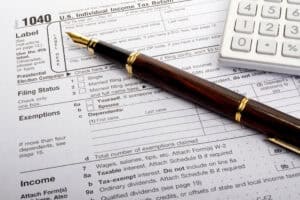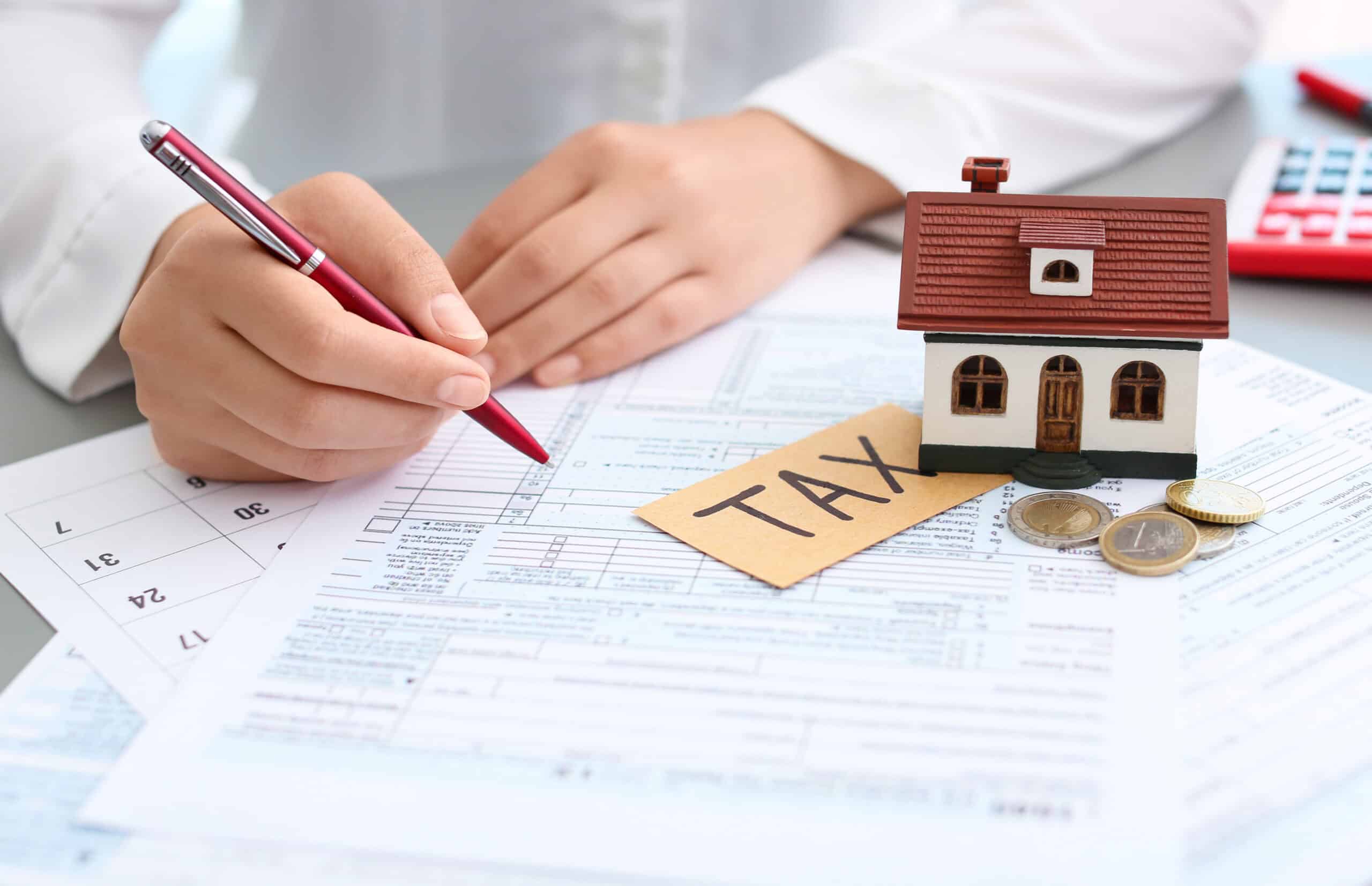Understanding effective real estate tax strategies is essential for any property owner—whether you’re buying your first home, considering a vacation property, or expanding into real estate investment. Each type of property is taxed differently, and those differences can significantly impact your deductions, exclusions, and long-term financial planning.
If you’re looking for a broader breakdown of common homeowner tax deductions, check out our complete guide to homeownership tax benefits. This article focuses on real estate tax strategies that vary depending on whether you own a primary residence, second home, or investment property.
In this article, we’ll focus specifically on how tax rules shift depending on how you use a property—comparing primary residences, second homes, and investment properties side by side.
How the IRS Classifies Your Property
Before diving into deductions and tax benefits, it’s important to understand how the IRS views each type of home:
-
Primary Residence: The home where you live most of the year. This classification offers the most tax benefits.
-
Second Home: A personal-use property like a vacation house or weekend retreat. Still eligible for some deductions, but with limits.
-
Investment Property: A property primarily used for rental income or capital appreciation. Tax treatment is focused on income, depreciation, and long-term gains.
How you use the property—not just how you label it—can determine how it’s taxed.
Tax Rules for Primary Residences
Owning your main home unlocks several valuable deductions and exclusions.
Key Tax Advantages:
-
Mortgage interest on up to $750,000 in acquisition debt is deductible
-
Property taxes are deductible up to $10,000 (combined with other SALT deductions)
-
Mortgage points are fully deductible in the year paid
-
Capital gains exclusion allows you to exclude up to $250,000 ($500,000 if married filing jointly) when selling, assuming the home was your primary residence for 2 out of the last 5 years
Special Notes:
-
You can only claim these benefits on one primary residence
-
You must meet usage tests to qualify for the capital gains exclusion
If you’re buying a home and unsure how these deductions might impact you, it’s worth reviewing your loan terms using the Mortgage Refinance Calculator if you’re considering restructuring an existing mortgage.
Tax Treatment for Second Homes
A second home—often a vacation house or occasional-use property—offers a few tax benefits, but not as many as your primary residence.
What You Can Deduct:
-
Mortgage interest and property taxes, subject to the same limits as your main home
-
You must use the home personally for at least 14 days a year or 10% of the time it’s rented (whichever is more) to qualify as a second home
What You Can’t Do:
-
You can’t claim capital gains exclusions unless the second home later becomes your primary residence
-
Home office and other business-related deductions are not allowed
Planning Tip:
If you plan to rent your second home occasionally, and it’s used personally for fewer than 15 days annually, the IRS may consider it a rental property, changing how income and expenses are handled.
Investment Properties: A Different Tax Strategy
An investment property opens the door to a broader set of deductions, but with a focus on income generation rather than homeownership perks.
Deductible Expenses Include:
-
Mortgage interest and property taxes
-
Operating expenses like repairs, insurance, property management
-
Depreciation of the building over 27.5 years
-
Travel costs related to property oversight
Passive Loss Rules:
-
If you actively participate in managing the property and earn less than $100,000/year, you may deduct up to $25,000 in rental losses annually
-
Loss deductions phase out completely at $150,000+
When You Sell:
-
No capital gains exclusion applies
-
1031 exchanges can be used to defer gains if the sale proceeds are reinvested into another like-kind property
-
You may need to recapture depreciation at sale, adding to your taxable income
Comparing Real Estate Tax Strategies by Property Type
| Tax Feature | Primary Residence | Second Home | Investment Property |
|---|---|---|---|
| Mortgage Interest Deduction | ✅ Yes | ✅ Yes | ✅ Yes (as expense) |
| Property Tax Deduction | ✅ Yes (capped) | ✅ Yes (capped) | ✅ Yes (as expense) |
| Capital Gains Exclusion | ✅ Yes | ❌ No | ❌ No |
| Depreciation Deduction | ❌ No | ❌ No | ✅ Yes |
| Operating Expense Deductions | ❌ No | ❌ No | ✅ Yes |
| Home Office Deduction | ✅ Possibly (if qualified) | ❌ No | ✅ Yes |
These differences form the foundation of any smart real estate tax strategy. Choosing the right structure for your property goals can lead to better deductions now—and fewer surprises later.
How Changing Property Use Impacts Taxes
Sometimes a property changes classification. Maybe you convert your old home into a rental or start spending more time at your second home. The IRS tracks these changes, and your tax strategy must adapt accordingly.
Example Scenarios:
-
Turning a primary residence into a rental: You lose capital gains exclusion unless you’ve met the 2-of-5 rule recently. You gain depreciation and rental expense deductions.
-
Using a second home as a short-term rental: If rented for more than 14 days, you must report income. Expenses are partially deductible based on time rented vs. personal use.
FAQs: Tax Differences by Property Type
What are real estate tax strategies?
Real estate tax strategies refer to how property owners structure ownership, use, and transactions to minimize taxes and maximize deductions. These strategies vary based on whether the property is a primary residence, second home, or rental.
What qualifies a home as a primary residence for tax purposes?
It’s where you live most of the year, receive mail, and register to vote. You must occupy it for at least two of the last five years to qualify for the capital gains exclusion.
Do I get the same tax breaks for a second home?
Some, but not all. You can deduct mortgage interest and property taxes, but you won’t qualify for capital gains exclusions or most business deductions.
What are the biggest tax advantages of investment property?
Depreciation, operating expense deductions, and the ability to offset other income with rental losses (in some cases) are major benefits.
Can I change how a property is classified over time?
Yes, but the IRS will look at usage patterns. You can convert a primary residence to a rental and vice versa, but different tax rules apply during each period.
How does the IRS know what kind of property I own?
Through your tax return, reporting forms (like Form 1098), and usage records. Intent, occupancy, and income all help classify the home.
Final Thoughts
The tax code treats your primary residence, second home, and investment property very differently. Knowing the rules can help you plan smarter, avoid surprises, and build wealth more efficiently.
If you’re considering purchasing another property, or adjusting how you use your current one, talk to a tax advisor. The right move can unlock deductions or exemptions that meaningfully impact your bottom line.
Related Posts

Tax Benefits of Rental Property: Advanced Strategies for Real Estate Investors
Rental properties offer some of the most powerful tax benefits available to individual investors — but most landlords only scratch the surface. If

Condo vs Townhouse: Which Is the Smarter Buy for Long-Term Value?
If you’ve narrowed your home search down to a condo or a townhouse, you’re already well ahead of most first-time buyers. But the

The Tax Benefits of Owning a Home: What Every Homeowner Should Know
Owning a home comes with more than just personal and financial stability—it can also unlock valuable tax advantages. If you’re a homeowner or

